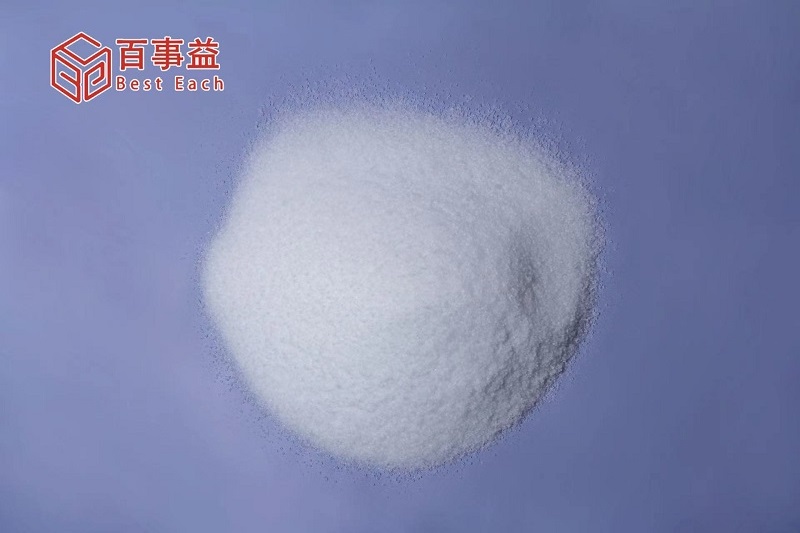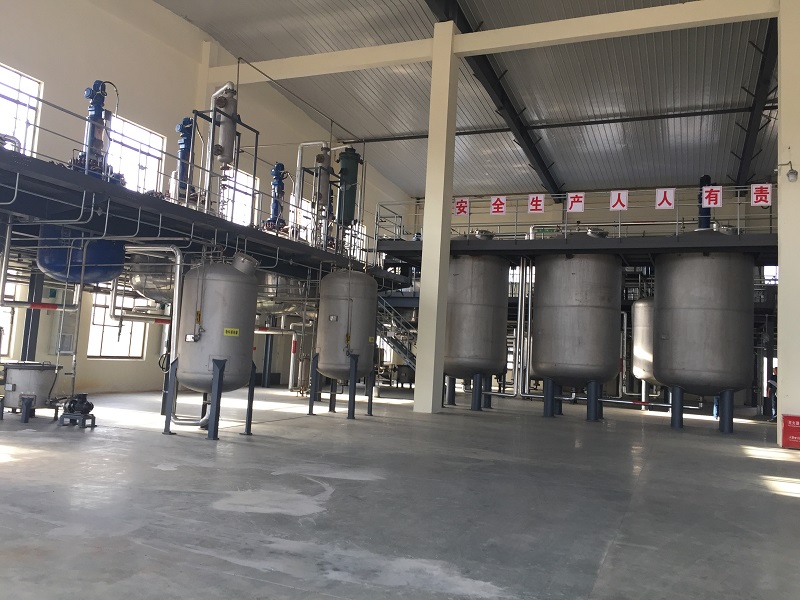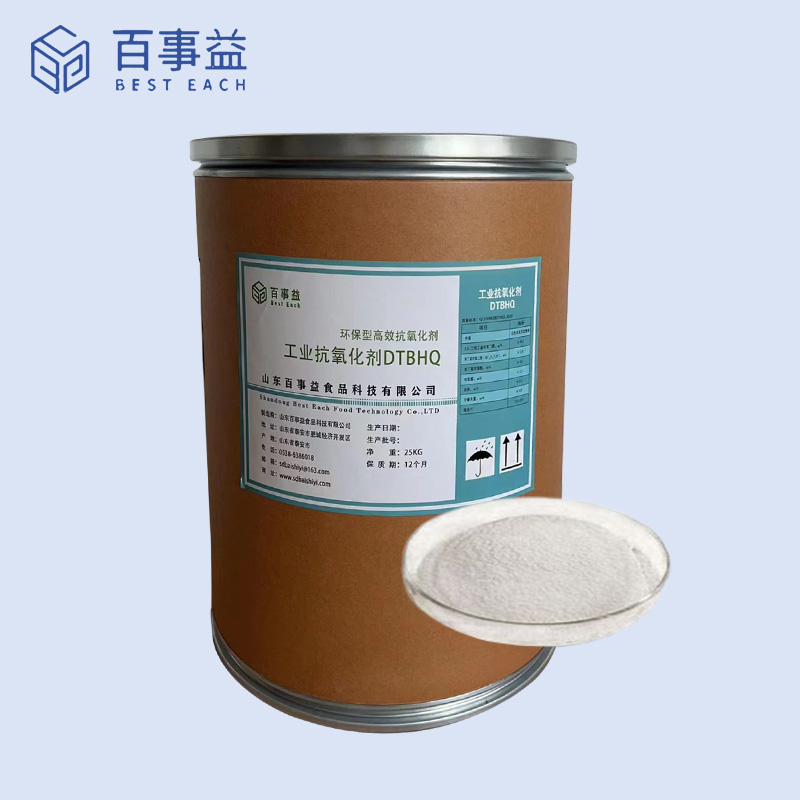2,5-DI-tert-butylhydroquinone DTBHQ
Tert butyl hydroquinone (TBHQ), also known as tert butyl hydroquinone, is a white crystalline powder with a melting point of 126.5-128.5 ℃ and a boiling point of 300 ℃. Its CAS number is 1948-33-0, and it is easily soluble in ethanol and ether. It is the most effective antioxidant for most oils, especially vegetable oils. T-butylhydroquinone, abbreviated as TBHQ, has a molecular formula of Cl0H1402 and a molecular weight of 166.22. [1] It is a white to light gray crystalline or crystalline powder with a very slight special odor.
Oil antioxidants are a type of substance that can prevent or delay the deterioration of oils or fatty foods, extend their shelf life, and tert butyl hydroquinone (TBHQ) is a high-quality edible oil antioxidant. The article comprehensively introduces the properties and synthesis of tert butyl hydroquinone, as well as its applications in various fields.
It is a white to light gray crystalline or crystalline powder with a very slight special odor. It is soluble in ethanol, acetic acid, ethyl ester, isopropanol, ether, and oils, and is almost insoluble in water (25 ℃,<1%; 95 ℃, 5%). TBHQ is an oil soluble antioxidant that can prevent or delay the oxidation and deterioration of fats in food. As a food additive, TBHQ has been used in more than 20 countries such as the United States.

Tert butyl hydroquinone (TBHQ), also known as tert butyl hydroquinone, is a white crystalline powder with a melting point of 126.5-128.5 ℃ and a boiling point of 300 ℃. Its CAS number is 1948-33-0, and it is easily soluble in ethanol and ether. It is the most effective antioxidant for most oils, especially vegetable oils. T-butylhydroquinone, abbreviated as TBHQ, has a molecular formula of Cl0H1402 and a molecular weight of 166.22.
At present, the production of tert butyl hydroquinone both domestically and internationally adopts the tert butylation method of hydroquinone, as shown in Figure 2. According to different classifications of alkylation reagents, it can be divided into tert butyl method, isobutylene method, and MTBE method.







